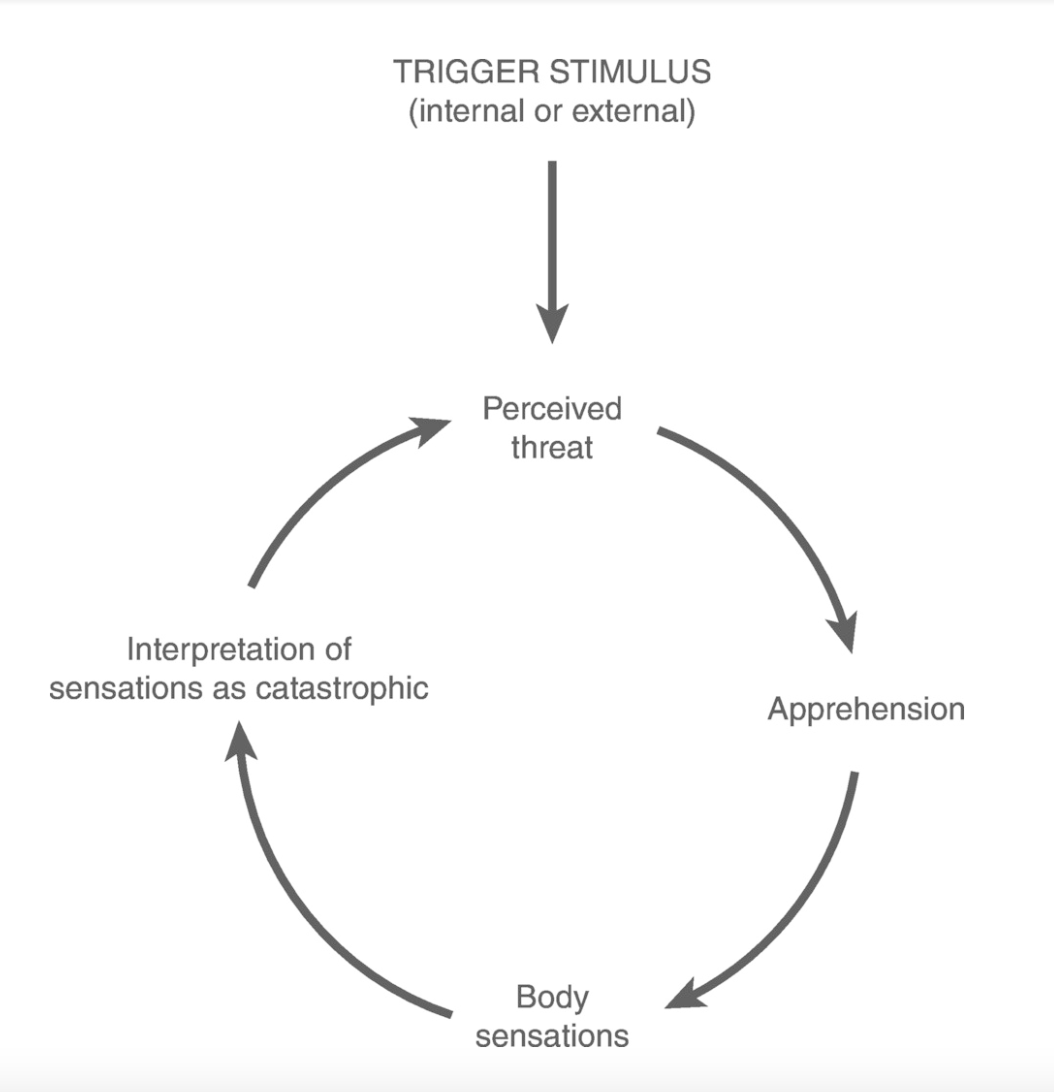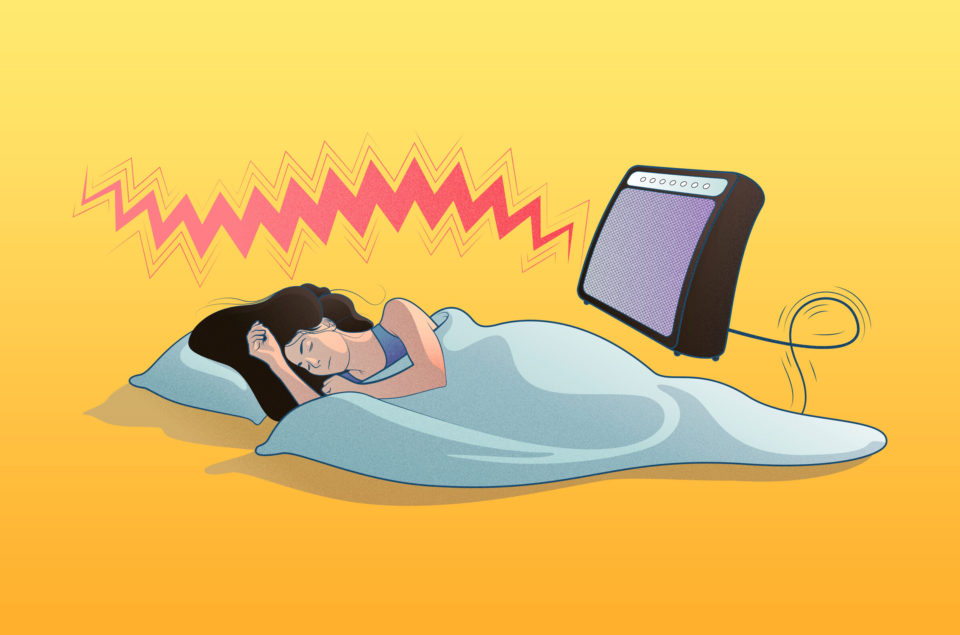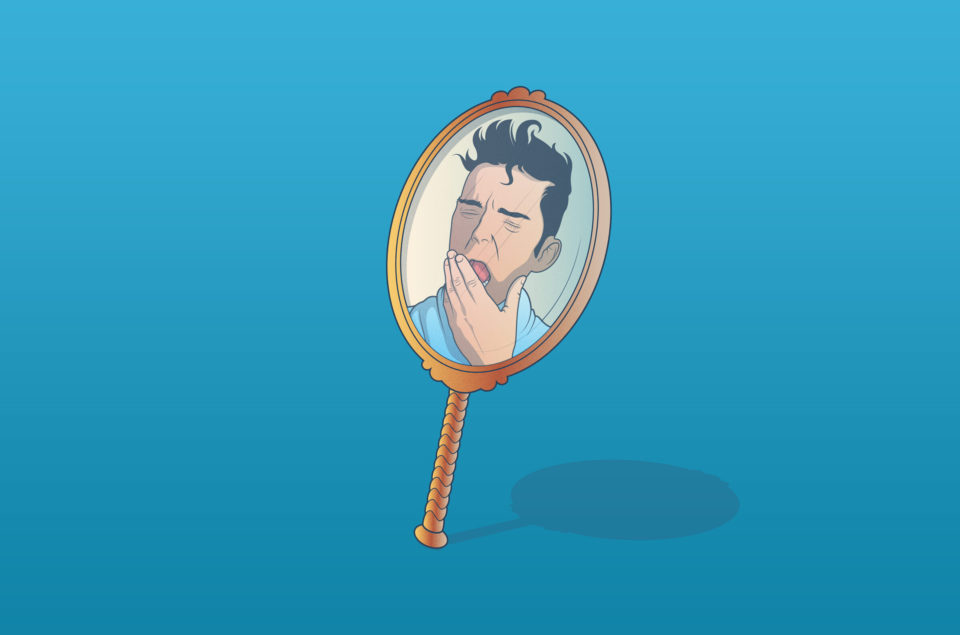It’s not uncommon to struggle with sleep from time to time – for various reasons. Elevated cortisol levels could be one reason for your lack of shuteye. But what is cortisol and how does it affect sleep? Cortisol is a steroid hormone (glucocorticoid) that is best known for regulating your body’s response to stress, hence the name “stress hormone”. It also helps regulate other vital functions such as the immune system, metabolism and your sleep-wake cycle. We answer your most frequently asked questions about how cortisol interferes with sleep and explore ways to stimulate healthy cortisol levels.
1. How does cortisol work?
In order to understand how cortisol can play tricks on your sleep, we need to explain where in the body cortisol operates. The complex system in which cortisol is produced is referred to as the hypothalamic-pituitary-adrenal axis (HPA axis). It incorporates elements of the endocrine system (glands and organs) and the central nervous system (brain and spinal cord) which is why the activity here affects such large parts of our health.
When you experience stress, your brain, more specifically your hypothalamus and pituitary gland, prompts the adrenal glands to release cortisol along with adrenalin to boost energy and curb nonessential functions. This process enhances your performance in “fight or flight” mode.
2. How does cortisol affect sleep?
Sleep is regulated by the sleep hormone, melatonin, and the stress hormone, cortisol, usually following your body’s internal 24-hour clock; the circadian rhythm. Cortisol helps you wake up and stay awake until melatonin takes over.
Here’s the part to remember; The sleep-inducing hormone, melatonin, also operates within the HPA axis. So when something disrupts the HPA axis, it disrupts your sleep cycle as well. Increased cortisol suppresses melatonin and dilutes adenosine – the molecule responsible for the sleep pressure that ‘tips you over the edge’ and into perfect slumber. The result is elevated arousal levels at bedtime, insomnia, fragmented sleep, and difficulty getting the much needed deep, restorative sleep. This stimulates cortisol secretion even more (to fight the stressors) which prevents a good night’s sleep. It’s a vicious cycle.
Is women’s sleep affected more by cortisol?
It can be, yes. Prolonged high cortisol levels may change women’s menstrual cycle and libido because cortisol lowers estrogen levels. The result is a hormonal imbalance with symptoms similar to those of menopause; night sweats, sleep problems, mood swings, and deposit of fat in the middle section of the body. Remember how cortisol helps shut down any function that is not necessary for fight or flight? This is why.
Sleep may also be worsened for women actually going through menopause, because stress, depression and anxiety are known to increase during this time. Levels of cortisol are higher at night time during menopause, and they have been shown to spike just after a hot flash. Both add to the increased feeling of anxiety or alertness, often making sleep difficult.
3. What causes high cortisol levels at night?
All forms of physical and psychological stress can cause elevated cortisol levels and potential HPA axis dysfunction. Think:
- sleep deprivation or disruption
- irregular bedtimes, fx due to shift work or ‘social jetlag’
- unhealthy diet
- lack of exercise
- relationship problems
- (work) anxiety
- trauma and grief
- chronic pain
- certain medications
- pregnancy
- …you name it.
Constant stress on the HPA axis adds significant stress to our nervous and endocrine systems which stimulates cortisol secretion even more.
What are the signs?
The list of signs of high cortisol levels is long and can be confused with other conditions, so always talk to your physician if you suspect you may be affected by this:
- Mood swings, including depression and anxiety
- Sleep problems; nighttime awakenings, insomnia, lack of deep sleep
- Compromised immune system; increased inflammation and overall vulnerability to illness.
- Rapid Weight gain (slow metabolism, increased appetite and upper back fat)
- Problems with focus and memory
- Sleep apnea
- Fatigue (low energy levels)
- Increased urination
- A round, flushed face
- Low libido and irregular periods (women)
4. How to avoid high cortisol levels naturally?
Because of cortisol’s vital role for our overall health and ability to sleep and wake up, it’s important to focus on how to achieve healthy levels of cortisol. Remember, cortisol is your friend when you need an extra boost to catch the bus or ace your work presentation (or, flee a bear on your hike). Most of us are unable to remove stress altogether from our daily lives. The key is to level your cortisol naturally by finding ways to actively turn stress and anxiety into useful energy. Your doctor is more than happy to guide you on how to implement new changes to your routine.
- Establish good sleep hygiene – a good bedtime routine, at the same time every day, following your natural circadian rhythm and allowing for at least 7 hours of sleep.
- Exercise – early in the day when cortisol levels are naturally high (not too close to bedtime)
- Recognize stressful thinking and triggers – seek professional guidance if needed
- Keep a journal or a planner – empty your head before bedtime or as you wake up
- Relax – get a massage and practice relaxation techniques such as yoga, deep breathing, meditation or even caring for a pet.
- Laugh – find ways to have fun, surround yourself with people that make you happy, and focus on what you are grateful for.
- Make time for hobbies
- Eat healthy foods containing omega-3 fatty acids, or explore natural supplements such as L-theanine and magnesium. Avoid unhealthy ways of managing stress such as excess caffeine, alcohol, tobacco or excess food.
5. What is a normal cortisol level in the morning and at night?
Cortisol is normally lowest around midnight and highest in the early morning, between 6 and 8 am. Cortisol levels drop during the day making way for the sleep inducing hormone, melatonin, to help you fall and stay asleep at night.
A healthy cortisol level is one that follows the 24-hour circadian rhythm in perfect balance with melatonin. An example of normal cortisol levels could look like this:
- 6 to 8 a.m.: 10 to 20 micrograms per deciliter (mcg/dL)
- Around 4 p.m.: 3 to 10 mcg/dL
As mentioned, stressors will make cortisol levels rise. However, levels normally drop to baseline after a short while. Individuals exposed to chronic stress (shift work, pain, worry, etc.) have a higher cortisol baseline than others and may struggle to maintain healthy cortisol levels.
6. Does high cortisol cause insomnia?
If you find yourself waking up at 3 am on a regular basis, you could be secreting too much cortisol too late in the day. High cortisol levels (and an overactive HPA axis) have been linked to insomnia and fragmented sleep, but the reverse is also true; sleep deprivation also causes your body to secrete more cortisol during the day, perhaps in an effort to stay alert. In this sense, cortisol could be both a cause and a consequence of insomnia.
Can melatonin reduce cortisol?
It may help, yes. Cortisol and melatonin work together in a delicate balancing act for an optimal sleep-wake cycle. Increased cortisol production suppresses melatonin and your ability to sleep soundly when you are supposed to. Too much melatonin, and your ability to be awake decreases as well.
Melatonin supplements are sometimes prescribed for short-term sleep problems such as insomnia. Melatonin delays the production of cortisol, making it easier to stay asleep at night. For long-term sleep issues, it is best to practice natural ways to reduce or level out your cortisol production (more on this later).
7. Can cortisol cause morning anxiety?
Yes, at least some might think so. Cortisol production naturally peaks around the time you wake up. In addition to this natural peak, a bonus cortisol boost called the Cortisol Awakening Response (CAR) sets in soon after waking up. It’s suggested that CAR is your brain’s gift to help prepare for acute stress and the day ahead, say a competition or starting a new job.
Ironically, for people going to bed stressed or worried, an increased cortisol awakening response can have the opposite effect and further increase stress and anxiety levels. The increased heart rate and blood pressure from your CAR boost are easily misinterpreted as something alarming, say, a heart attack, where in fact, it’s there to help you prepare for your 9 a.m. presentation. Experts refer to the cognitive model of panic disorder to explain how perceived threats from a misinterpretation of physical symptoms easily sends people into a panic loop.
8. Can high cortisol cause night sweats?
In theory, yes. Feeling stressed and anxious from increased cortisol secretion often leads to sweating. However, if you don’t find yourself feeling anxious at night, something else might be the culprit. There are multiple reasons for waking up drenched at night, so we always recommend that you speak to a professional about your specific situation.
9. Is there any link between cortisol and sleep apnea?
Yes. But, it remains unclear if cortisol directly contributes to sleep apnea or is merely affected by it. People with sleep apnea often show elevated cortisol levels, which is thought to be a result of the chronic sleep loss and compromised breathing associated with this condition. Stress may also lead to other conditions that can contribute to the development of sleep apnea (think: obesity, high blood pressure and heart disease). And sleep apnea symptoms may worsen from the disrupted sleep that elevated cortisol can cause.
10. Will my cortisol levels get out of whack if I am a night owl or work night shifts?
The truth? Probably. You’re likely to throw off your natural cortisol rhythm when you’re not following your body’s internal sleep clock – even if you meet your sleep needs.
The good news is that the more regular your irregular sleep pattern is, the better it seems for adjusting your cortisol levels to night shifts.
Your circadian rhythm and your cortisol peak times can be shifted to some extent over time. But a study among permanent night shift workers showcases how a complete reversal or adjustment of your circadian rhythm is close to impossible. The study found that less than 3% showed signs of complete circadian adjustment and that they showed symptoms of chronically high cortisol levels. This is even harder to achieve when shift workers are expected to follow a regular day and night rhythm during days off.
So even if your night owl chronotype suggests that your optimal sleep and wake time is later than average, shifting or late bedtimes can lead to what experts call circadian misalignment and increased health risks from elevated cortisol.
What to remember about the stress hormone
Cortisol is vital for our health and necessary for our daily performance. Because it’s hard to avoid cortisol from veering too high, it becomes important to focus on natural ways to level cortisol secretion by practicing self care such as stress management and good sleep hygiene.











